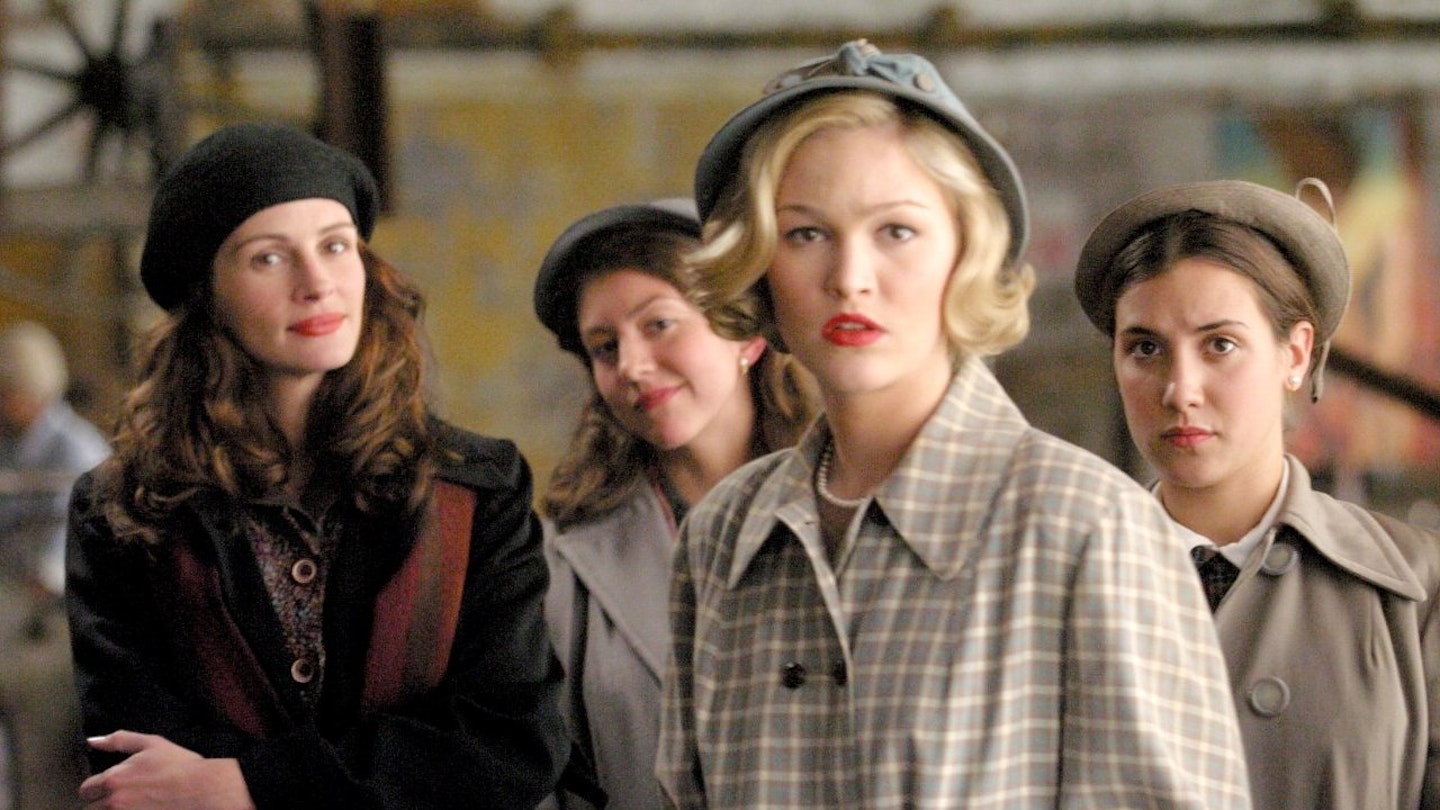There are some roles Julia Roberts was born to play - a tart with a heart, say, or a likeable and famous actor - but a charismatic, inspiring 1950s teacher is not one of them.
She glides into Mona Lisa Smile like a walking anachronism - nice, but always a movie star. We have to be told several times that she's bohemian, for we certainly wouldn't have known otherwise. It's this kind of clumsy characterisation that reduces a film that could have lived up to its 'female Dead Poets Society' tag to an acceptably diverting piece of fluff.
On arriving at the girls' school, Katherine (Roberts) befriends a lesbian teacher (Juliet Stevenson) who is swiftly dispensed with when the message behind her role has been conveyed to the audience. She then locks horns with a conservative student, Betty (The Bitch), who exists solely to challenge Katherine's beliefs, and plays mentor to Joan (The Brain), who exists solely to become a sponge for them.
Two performances stand out, thanks in part to characters that hint at two dimensions rather than one. Marcia Gay Harden works the tragicomic potential of Nancy, a vulnerable spinster teacher who clings to the school's traditions in an attempt to bury her sorrow.
Maggie Gyllenhaal is delightful as Giselle, in theory The Slut but in practice the most engaging character this film has to offer. Her key storyline - an affair with the vacantly handsome Italian teacher (Dominic West) - exposes a young woman struggling with the emotional demands of the sexual freedom she's outwardly keen to embrace. This subplot is the only one to add weight to the film's generally sketchy feminist message. The other girls' romantic interludes are often entertaining, but have a negligible relationship to the central themes and certainly do nothing to deepen our understanding of them.
